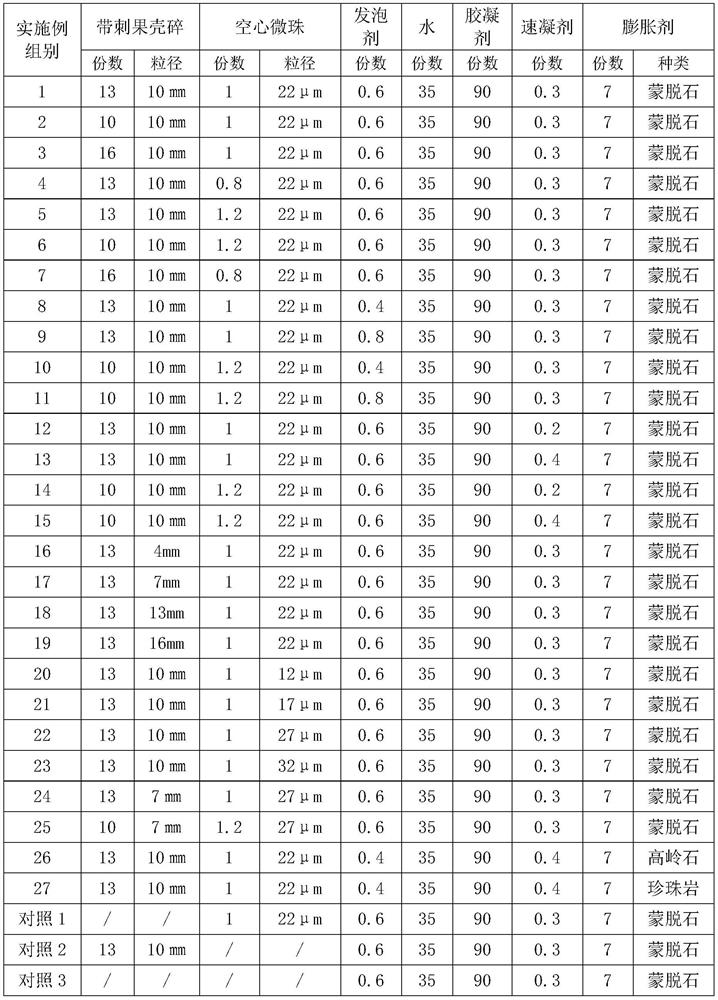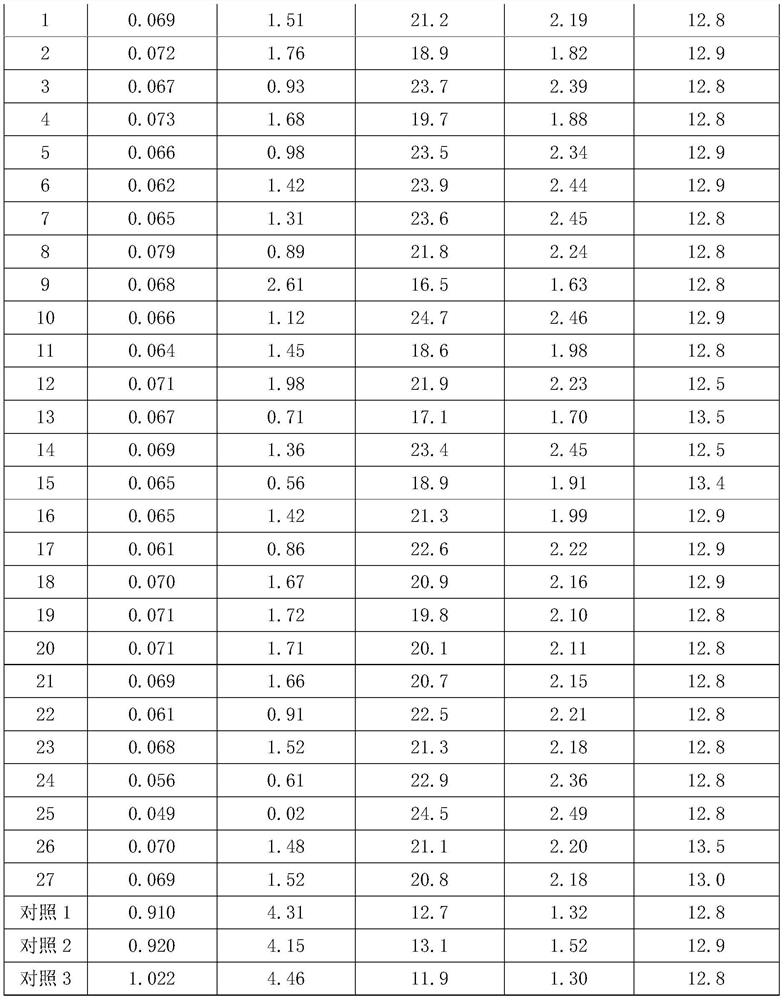A production process for pouring foam concrete into hollow bricks
A production process and technology of hollow bricks, which is applied in the field of self-insulation block preparation, can solve problems such as difficulty in balancing insulation performance and brick strength, poor bonding between foam concrete and bricks, and unsatisfactory foaming effect, so as to improve the later strength Low density, low density, and the effect of reducing the use of foaming agents
- Summary
- Abstract
- Description
- Claims
- Application Information
AI Technical Summary
Problems solved by technology
Method used
Image
Examples
Embodiment
[0062] 1. Use the steps of the above-mentioned production process of pouring thermal insulation materials into hollow bricks to produce 30 groups of hollow brick samples filled with thermal insulation materials of different formulas. Each group of samples must have at least six bricks. Among them, the 28th, 29th, and 30th groups are blank control group.
[0063] The test raw materials of each embodiment are all commercially available: the hollow brick is a sintered brick with shale as the main raw material, the raw material of the broken prickly fruit shell is chestnut shell, the raw material of the hollow microsphere is hollow glass microsphere, and the foaming agent is dodecane Sodium phenyl sulfonate, the gelling agent is cement, and the quick-setting agent is alumina clinker-carbonate-based quick-setting agent.
[0064] The concrete formula of each embodiment insulation material is as shown in table 1.
[0065] The concrete formula of each embodiment insulation material o...
PUM
| Property | Measurement | Unit |
|---|---|---|
| particle diameter | aaaaa | aaaaa |
| particle diameter | aaaaa | aaaaa |
| particle diameter | aaaaa | aaaaa |
Abstract
Description
Claims
Application Information
 Login to View More
Login to View More - R&D
- Intellectual Property
- Life Sciences
- Materials
- Tech Scout
- Unparalleled Data Quality
- Higher Quality Content
- 60% Fewer Hallucinations
Browse by: Latest US Patents, China's latest patents, Technical Efficacy Thesaurus, Application Domain, Technology Topic, Popular Technical Reports.
© 2025 PatSnap. All rights reserved.Legal|Privacy policy|Modern Slavery Act Transparency Statement|Sitemap|About US| Contact US: help@patsnap.com



